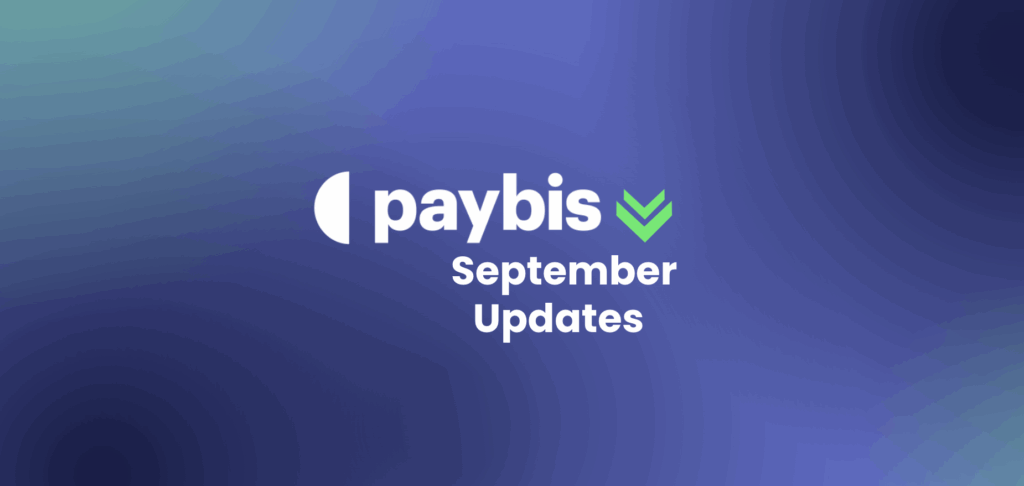Why Users Are Reluctant to Buy Crypto
Cryptocurrency has gone from fantasy of the geeks to the torchbearer of a new financial system. The recent approval of spot Bitcoin ETF applications by the SEC in the US is a testament to crypto’s sustainability.
Despite the growing popularity of cryptocurrencies among users and over 4.2 million daily unique active wallets across major dApps, most people are still hesitate to put their money in this new asset class.
This reluctance can be attributed to a variety of factors that make the journey into the world of digital currencies seem daunting. From the lack of suitable payment methods that restrict entry to a more diverse audience, to concerns over user support and recovery mechanisms in case of errors, the barriers are both real and perceived.
This article will explore why users are reluctant to buy crypto and illustrate how Paybis effectively mitigates their concerns to provide a safe haven to buy/sell cryptocurrencies using fiat.
Table of contents
No Suitable Payment Methods
One of the primary hurdles in the adoption of cryptocurrency is the lack of suitable payment methods. Many potential users find themselves at a loss due to the limited options available for purchasing digital currencies.
Traditional payment systems, often constrained by geographical and regulatory boundaries, do not seamlessly align with the global and decentralized nature of cryptocurrencies. This mismatch significantly limits accessibility, especially for those in regions with less developed financial infrastructure or stringent regulatory environments.
This causes a great imbalance of accessibility across regions — favoring some sections of the population more than others. It’s noted that only about 33% of adults globally are financially literate. Such barriers to accessibility has also been acknowledged by prominent figures like U.S. Treasury Secretary, Janet Yellen
The limitations in payment methods extend beyond mere availability. They also encompass issues related to ease of use, processing times, and compatibility with different financial systems. For instance, some platforms may only accept bank transfers or specific e-wallets, which can be cumbersome or impractical for many users. This not only restricts the pool of potential cryptocurrency adopters but also hinders the pace of broader financial inclusion and innovation in the digital asset space.
80+ Payment Methods with Paybis
Recognizing these challenges, Paybis steps in to bridge the gap. By integrating Paybis’ white label on/off-ramp, businesses can offer their customers over 80 payment methods to buy crypto, including credit/debit cards, Apple Pay, M-Pesa (Kenya), and Airtel Money (Kenya).
Paybis ensures that users from diverse financial backgrounds can participate in the crypto economy. This inclusivity is vital for fostering a more equitable and expansive cryptocurrency landscape, inviting users who were previously sidelined due to payment method restrictions.
Poor UI/UX from Buying to Storage
The journey into the world of cryptocurrency often begins with a platform’s User Interface (UI) and User Experience (UX). This can significantly impact a new user’s willingness to engage with digital assets.
Many cryptocurrency platforms, especially in their nascent stages, have faced criticism for complex and unintuitive interfaces. This complexity not only hinders user interaction but can also lead to errors and misunderstandings, particularly detrimental in a space where transactions are irreversible.
The UI and UX of crypto platforms can be daunting for several reasons.
- The terminology used in cryptocurrency is often technical and unfamiliar to new users. Terms like “blockchain,” “wallet addresses,” and “private keys” can be confusing without proper context or explanation.
- The process of buying, transferring, and storing crypto often involves multiple steps and verifications, which, while necessary for security, can be overwhelming for beginners.
- The diversity of cryptocurrencies and their associated technologies can lead to a steep learning curve for users who are not tech-savvy.
These issues contrast starkly with traditional financial applications, which have generally evolved to offer more user-friendly interfaces and simplified processes. In traditional banking apps and online platforms, users are guided through processes with clear instructions and support, making transactions more accessible and less intimidating.
Great Crypto UX Begins with Paybis
A report by CRADL highlights that great user experiences require more than just nice visual design or user interface best practices; they need to address the specific needs and expectations of users, especially those who are not early adopters and are driven more by ease of use and practical problem-solving.
To address these challenges, Paybis has implemented several user-centric solutions. By providing simplified Know Your Customer (KYC) processes and passwordless logins, Paybis reduces the barriers to entry for new users.
When businesses integrate Paybis, they are able to fully tailor the look and feel of the process while retaining the ability to purchase crypto in less than 60 seconds and eliminating double authentication.
High Transaction Fees
Another significant barrier to the adoption of cryptocurrency is the issue of high transaction fees. In the crypto world, transaction fees can vary widely depending on the network, the demand for processing transactions, and the specific cryptocurrency being used.
Most fees for cryptocurrencies are generally in the range of $0.0005 to $25, depending on the coin and the current demand on its network. These fees are necessary for the operation and security of blockchain networks, as they compensate the miners or validators who process and verify transactions.
However, high fees can be a deterrent for both potential and current users, especially when compared to traditional financial transactions which might offer lower or even no fees for certain services (like UPI in India).
If users want to buy popular cryptocurrencies like BTC and ETH in small quantities at near-zero transaction fees, then centralized exchanges (custodians) are their only resort most of the time. Self-custody comes at a much higher price for micro-purchases of such cryptos.
Self-Custody of Crypto at Reasonable Fee with Paybis
At Paybis, we encourage users to stay safe and accountable for their own assets. To put this into action, we introduced Paybis Promo Codes.
Paybis Promo Codes, now also available to partners, is an e-commerce-inspired incentivization mechanism that discounts platform fees for users.
Concerns About Hacks and Scams
One of the most significant barriers to the wider adoption of cryptocurrencies is the concern over hacks and scams. The digital nature of cryptocurrencies, coupled with their decentralized and often unregulated ecosystem, makes them a prime target for cybercriminals.
These concerns are not unfounded, as numerous high-profile hacks and scams have occurred within the crypto space, leading to substantial financial losses for investors and negatively impacting public perception.
In 2021 alone, the cryptocurrency market faced significant challenges with illegal activities, including scams and hacks, costing investors around $14 billion.
Paybis Ensures Safety
Partners integrating Paybis have the “safety” aspect cut out for them. By providing a robust set of tooling via Paybis SDK and storing all user data in PCI-DSS certified data centers, we meet high standards of information security.
Paybis is also registered with recognized financial institutions in multiple countries, like, FinCEN in the USA and FINTRAC in Canada. All transactions are screened to ensure KYC/AML compliance.
Educating users about the risks associated with cryptocurrency transactions and how to avoid common scams is a crucial step in mitigating these risks. We actively invest in providing educational resources empower users to make informed decisions and recognize potential threats. This proactive approach not only protects individual users but also contributes to a more secure and resilient crypto ecosystem.
Lack of Real-Life Use Cases
With over 1,000 blockchain networks and more than 20,000 cryptocurrencies currently circulating, the internet has most convinced that crypto is a ‘solution looking for a problem.’
As of the time of writing, over 15,000 businesses worldwide accept Bitcoin payments, including major brands like Microsoft, Tesla, McDonald’s, KFC, and Starbucks. Americans alone spend about $1 million worth of Bitcoin daily on products and services, indicating a growing trend towards using cryptocurrencies for everyday purchases.
Yet, the perception of limited real-life use cases for cryptocurrencies is a significant barrier to their widespread adoption.
Further volatility of cryptocurrency values, the complexity of technology for average users, regulatory uncertainties, and scalability issues of blockchain networks also contribute to consumer reluctance.
Take Crypto to the Masses with Paybis
By integrating Paybis, businesses with real-life crypto-utility can offer their customers a secure and seamless way to acquire digital assets on-the-go.
With availability in 180+ countries and 50+ Alternative Payment Methods (APMs) Paybis supports a diverse range of payment options, including credit/debit cards, Apple Pay, and local payment solutions, making it accessible to a broad audience.
This integration can significantly contribute to the mainstream adoption of cryptocurrencies by simplifying the buying process and making digital assets more accessible to people worldwide.
Final Thoughts
The reluctance to buy cryptocurrencies, a dynamic and evolving asset class, reflects a complex interplay of factors including payment method limitations, intimidating user interfaces, prohibitive transaction fees, security concerns, and perceptions about real-life utility. Despite the significant strides made in legitimizing and popularizing cryptocurrencies, these barriers persistently dampen widespread adoption.
At Paybis, we are addressing the complexity of cryptocurrency transactions by offering user-friendly interfaces, powerful and practical features, and streamlined processes.
If you are offering crypto purchases to your users and want to step around the puddle of getting your users to buy crypto, reach out to us today.
Disclaimer: Don’t invest unless you’re prepared to lose all the money you invest. This is a high‑risk investment and you should not expect to be protected if something goes wrong. Take 2 mins to learn more at: https://go.payb.is/FCA-Info




